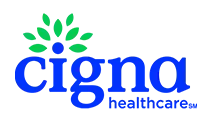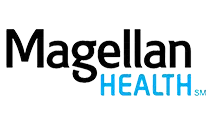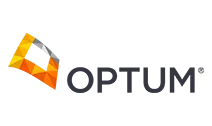 When depression is resistant to treatment, it can be a frustrating and debilitating experience. If you or someone you know is struggling with depression symptoms that do not seem to be improving with psychotherapy and medication, it is crucial to understand that there are other options available.
When depression is resistant to treatment, it can be a frustrating and debilitating experience. If you or someone you know is struggling with depression symptoms that do not seem to be improving with psychotherapy and medication, it is crucial to understand that there are other options available.
Alternative depression treatment
A psychiatrist may recommend one or more of the following depression treatment options when medications and psychotherapy have failed:
1. Electroconvulsive therapy (ECT)
Depression is a major mental illness that can cause a wide range of symptoms, from feelings of sadness and hopelessness to fatigue and difficulty concentrating. For people with severe depression, medication and talk therapy may not be enough to provide relief. In these cases, a practitioner may recommend electroconvulsive therapy (ECT).
ECT is a therapy that uses electrical impulses to stimulate the brain. This can help to improve mood and relieve symptoms of depression. ECT is generally safe and effective, but it does have some side effects, such as temporary memory loss. If you are considering ECT for your depression, it is important to discuss all of the risks and benefits with your doctor.
2. Transcranial magnetic stimulation (TMS)
Transcranial magnetic stimulation (TMS) is a newer depression treatment that uses magnetic waves to stimulate the brain. TMS is considered safe and effective and approved for major depression treatment by the Food and Drug Administration. However, some side effects of TMS include headache and scalp discomfort. If you are considering TMS for your depression, discuss all the risks and benefits with your doctor. During TMS therapy, a magnetic coil is positioned on the patient's head and used to send magnetic waves into the brain. These waves increase activity in areas of the brain with low activity, alleviating symptoms of depression.
3. Ketamine infusion therapy
Ketamine is a drug that doctors use as an anesthetic in a hospital setting. However, recent studies have shown that ketamine can also be effective in treating depression. Ketamine infusion therapy involves giving someone a low dose of ketamine intravenously. It can help to enhance mood and relieve depression symptoms within a few hours. Ketamine infusion therapy is generally safe, but there are some risks involved. These include temporary hallucinations and dizziness. If you are considering ketamine infusion therapy for your depression, discuss all the risks and benefits with your doctor.
4. Deep brain stimulation (DBS)
Using electrical impulses, deep brain stimulation (DBS) stimulates parts of the brain thought to be involved in depression. DBS is a relatively new treatment, and more research is needed to determine its safety and effectiveness. Some side effects of DBS include headache, nausea, and dizziness.
Put depression behind you
If you or somebody you know is battling symptoms of depression, it is crucial to understand that there are several depression treatment options available. ECT, TMS, ketamine infusion therapy, and DBS are all potential treatments for depression that a patient and their doctor can consider when medications and psychotherapy have failed.
Give us a call or visit our Houston clinic to discuss these treatment options with our psychiatrist.
Request an appointment or call Christies Family Health LLC at 832-915-1818 for an appointment in our Houston office.
Related Posts
Every year, more than 17 million individuals in the United States deal with depression. Depression, characterized by disruptions in a person's emotions, behavior, and thoughts, deprives a person of their ability to experience pleasure in life. Patients often experience a state of near-total numbness or persistent grief. The psychiatrist will typically recommend the proper treatment…
Patients struggling with depression often suffer from sleep difficulties, such as insomnia. Clinical Depression is associated with sleep disturbances (both problems getting asleep and maintaining it) or excessive sleep. As a result, it might be difficult to tell if depression is causing sleeplessness or whether insomnia is causing depression. A visit to the psychiatrist is…
Depression, if left untreated, may have far-reaching consequences. The condition may cause problems at work and home, interfere with sleep, heighten susceptibility to harmful habits like substance abuse, and make it harder to recover from physical ailments. However, most persons with depression may recover with appropriate treatment from a psychiatrist. Patients with depression usually respond…







